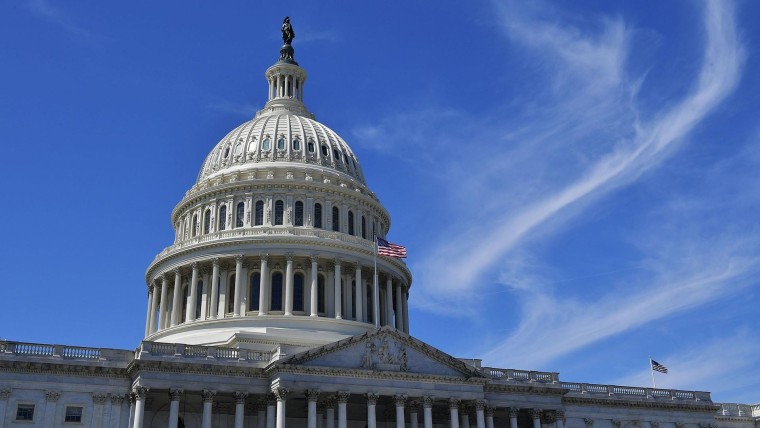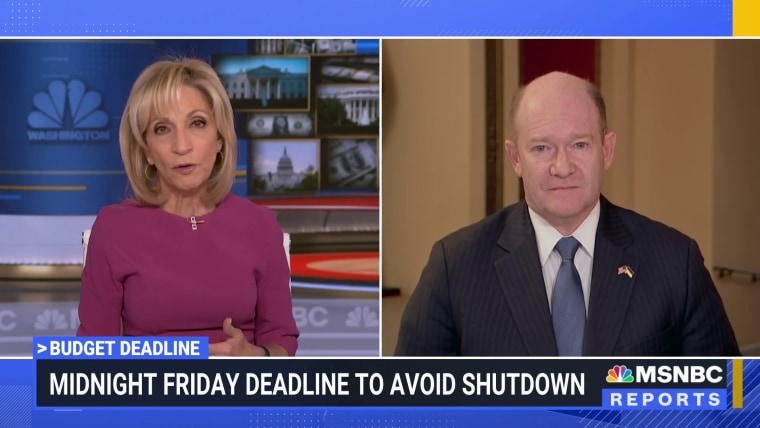Congress spent its last few days before the holidays as so many other Americans have: frantically. It was Thursday afternoon, just shy of a potential Christmas Eve shutdown, that the Senate passed an omnibus spending bill to fund the federal government through the fall of 2023.
The $1.7 trillion shopping list was long, but tucked in among the must-have line items of the year was a set of long-needed changes to the Electoral Count Act. That’s the 1887 law whose vagaries were key to former President Donald Trump’s bid to overturn the 2020 election. That these reforms got done at all is a minor Christmas miracle. And while they aren’t a panacea against the anti-democratic movement that Trump has championed, they are a start. What’s more, these minor changes would have been impossible to accomplish in just a few weeks when Republicans take over the House.
The Electoral Count Reform Act clarifies some of the supposed “loopholes” that Trumpworld lawyers cited when pushing former Vice President Mike Pence to nullify Joe Biden’s win on Jan. 6, 2021. The clarification includes language making clear that the vice president’s role is ceremonial, meaning that the vice president doesn’t have the power to toss out states’ electoral votes or “send it back to the states.” The act also raises the threshold for members of Congress to object to electoral votes and makes it harder for state legislatures or governors to ignore the popular vote when certifying Electoral College votes.
When or if the Senate would act has been unclear for months. Senate negotiators announced that they’d come to a deal in July, one that included enough Republicans as co-sponsors to overcome a filibuster. The House passed its version of ECA reform in September, just days before the Senate Rules and Administration Committee approved its own bill with a 14-1 vote.

The time since then have been tense, especially given the Democrats’ loss of a House majority in the midterms. As late as last week, there was no real clarity on whether the Electoral Count Reform Act would even be included in the omnibus bill. Its supporters in Congress and their staff made clear that they hoped it would be, but none was able to promise that it would be there when the final bill dropped. Thankfully, it was there for all to see on Monday when Senate leaders announced that they’d managed to strike a deal.
But a delay over an immigration amendment from Sen. Mike Lee, R-Utah, nearly derailed the whole package. It was only after hours of negotiations that the impasse was broken, pushing final passage back to Thursday. For a minute there, it looked like Congress might have let the moment slip through its fingers, giving the
Now, in the spirit of the season, I need to offer a mea cupla. The last time I wrote extensively about the proposed changes to the ECA it was in the context of Senate Minority Leader Mitch McConnell’s support for a bipartisan fix. I viewed McConnell’s position with skepticism, concluding that it was part of a strategy to weaken support for the Democrats’ John Lewis: Freedom to Vote Act, and dubbed it a “poison pill.”
In hindsight, though, there’s no evidence that support for the ECA siphoned support for the John Lewis bill. Even after the Senate GOP filibustered the voting rights bill (again), McConnell kept on supporting the bipartisan efforts to update the Electoral Count Act. And the two Democrats who could have voted to carve out an exception on the filibuster didn’t use the ECA negotiations as an excuse to let the larger bill die.
That said, while the changes in the ECRA are crucial (so crucial that lawmakers would have been negligent to leave them on the table) there’s more work to be done. “Make no mistake, this bill is no substitute for the comprehensive voting rights and process reforms we need to confront the wider challenges facing our democracy,” Sen. Angus King, I-Maine, one of the primary supporters of the bill said in a statement after the omnibus’ package.
I couldn’t agree more. It’s great that Congress will have managed to bolster democracy’s defenses against the most convoluted, brute force attacks Trump’s team mustered. But shielding the last stages of an election from assault will seem less impressive if the same level of protections doesn’t extend to the voting booth.

